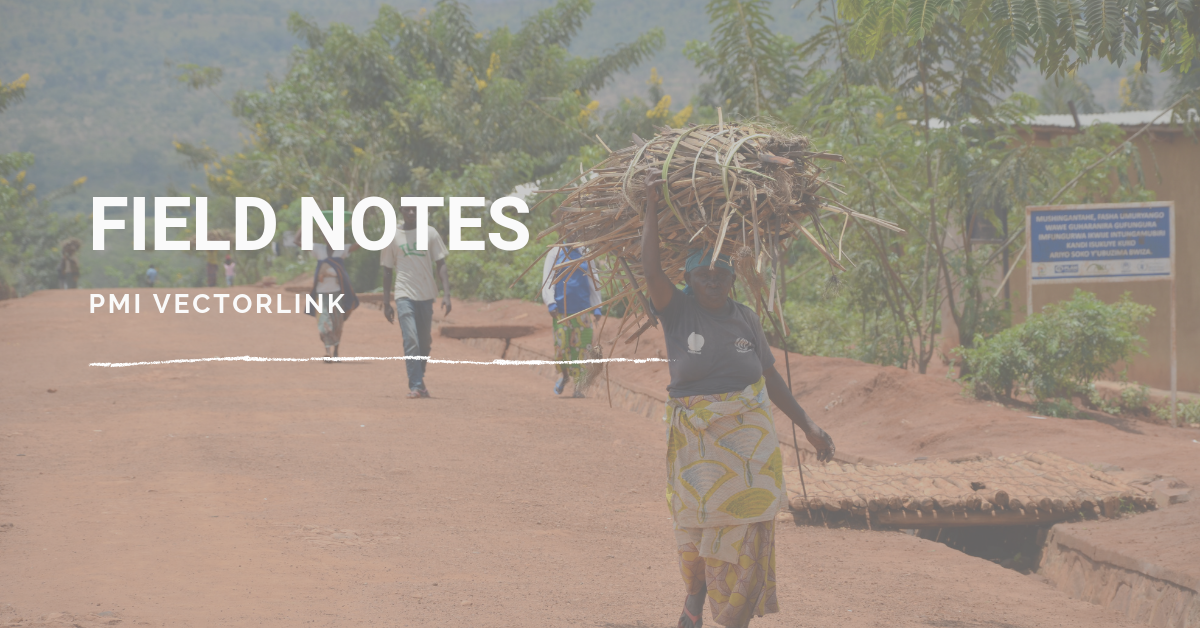This Fist Bump Friday goes out the VectorLink Zambia team after successfully completing their 2020 capacity building workshop
 on household preparation. In the course of implementing the 2019 campaign in the Copperbelt, the VectorLink project encountered several challenges; chief among them was poor household preparation by communities. Over the past 10 years when the government conducted IRS in the Copperbelt, communities were instructed to only remove kitchen utensils and food, leaving all other personal belongings piled together in the center of the room and covered with plastic sheets. This level of preparation did not allow the spray operators sufficient space to maneuver within the rooms to effectively spray the walls, negatively affecting the spray quality. When the VectorLink team’s efforts failed to get the communities to bring out all their personal items except very large immovable objects; the project suspended the campaign for one week to establish proper community household preparation. Upon resumption of the campaign, the team saw minor improvement in household preparation but there were still improvements to be made. VectorLink, PMI, and the NMEP agreed that a focused capacity building workshop on the topic was needed to see greater improvement towards VL standards of household preparation.
on household preparation. In the course of implementing the 2019 campaign in the Copperbelt, the VectorLink project encountered several challenges; chief among them was poor household preparation by communities. Over the past 10 years when the government conducted IRS in the Copperbelt, communities were instructed to only remove kitchen utensils and food, leaving all other personal belongings piled together in the center of the room and covered with plastic sheets. This level of preparation did not allow the spray operators sufficient space to maneuver within the rooms to effectively spray the walls, negatively affecting the spray quality. When the VectorLink team’s efforts failed to get the communities to bring out all their personal items except very large immovable objects; the project suspended the campaign for one week to establish proper community household preparation. Upon resumption of the campaign, the team saw minor improvement in household preparation but there were still improvements to be made. VectorLink, PMI, and the NMEP agreed that a focused capacity building workshop on the topic was needed to see greater improvement towards VL standards of household preparation.
The Copperbelt’s recent 2020 capacity building workshop targeted all IRS managers of districts within the province and national-level master trainers. Due to COVID flight restrictions, Operations Director, Allan Were, (who was meant to conduct the workshop) trained and equipped local VectorLink staff to conduct the training themselves. In July 2020, VectorLink Zambia successfully completed the capacity building workshop with 35 participants from national, provincial, and district levels in attendance. The workshop was conducted under strict COVID-19 prevention measures and social distancing.
The workshop addressed the challenges observed during the 2019 spray campaign. The field simulations provided participants with practical experience and a greater appreciation for why proper household preparation was important for quality IRS coverage. The workshop was greatly appreciated by the government participants who resolved to adopt the same approach when conducting IRS operations training in their respective districts. Mrs. Christine Mulesu, the Chief Environmental Health Officer for Copperbelt province said, “this training has opened our eyes to the important stages of an IRS campaign and proper household preparation. I personally appreciate VectorLink for coming up with such training and promise to adopt and use this approach when training the IRS team members in the province”.
Going into the 2020 spray campaign, the VectorLink Zambia team is confident that the Copperbelt province will experience a much-improved spray campaign, that will be characterized by proper household preparations, and improved quality of spray.
Congrats to the VL Zambia team!


